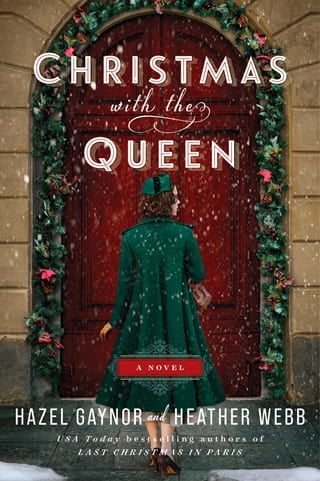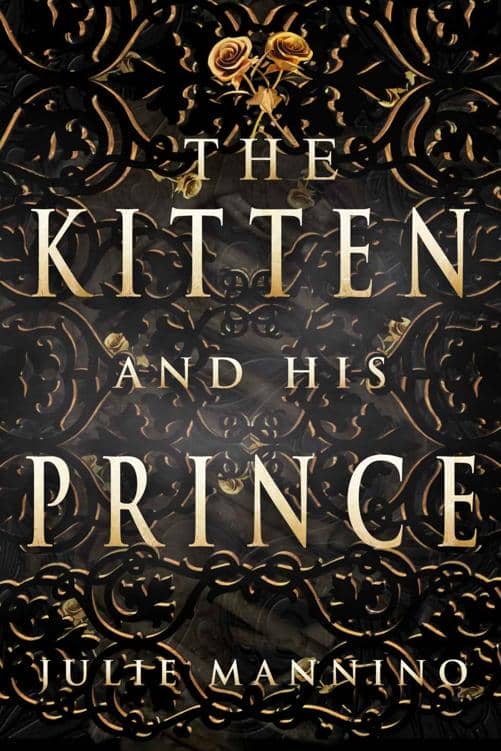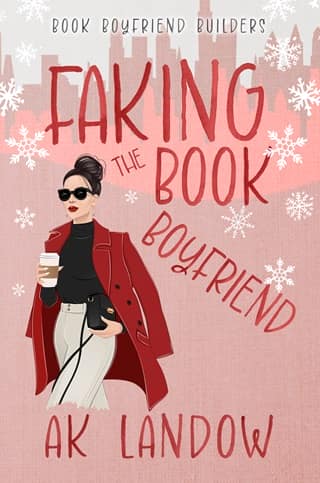Chapter 14 Olive
Chapter 14
Olive
London, December 1952
A fter another restless night turning everything over in my mind, I was glad of the crisp December air that settled over London a week before Christmas.
As we did every year, Lucy and I went out to admire the Christmas trees in the front windows of the houses along our street. At the park we threw stale bread to the ducks, laughing as they slid and stumbled on the icy water. We collected fallen pine cones and took a few sprigs of berry-laden holly to make a table decoration. We sang our favorite carols and called in at the shop on the corner to buy sugar mice and the week’s Radio Times . We stayed out until our cheeks and noses were pink with the cold, and we couldn’t feel our toes in our shoes. For all the fancy extravagance of Sandringham, I much preferred our simple family Christmas traditions. There was nothing I loved more than being outside with Lucy, wrapped up in our coats, hats, and gloves, a rosy winter sky promising snow. Everything else melted away when it was just the two of us.
Back home, I gave the Radio Times to my mother.
“Pass me a pen, love,” she said as she sat at the kitchen table. “I’ll circle the programs we don’t want to miss.”
This was my mother’s Christmas preparation. A religion all her own.
For a family who only went to church for obligatory weddings, christenings, and funerals, the Radio Times was our equivalent of the Bible, a sacred document to treasure, particularly when the special Christmas edition went on sale. The wireless cabinet was the pulpit from which those we idolized preached, providing endless entertainment from early morning until midnight when the programs ended and the station fell silent.
As children, my sister and I used to sit with the magazine and scrutinize the schedule, circling programs we planned to listen to, especially at Christmas. Sitting cross-legged beside that heavy old cabinet was one of my fondest memories. I felt safe there, even during the war, while voices as familiar to me as those of my own family soothed and distracted us with stories and comedy sketches and songs. Perhaps it was inevitable that I would follow those voices to the BBC, and that was why it mattered so much to one day see my name in the program listings in the Radio Times .
Charlie Bullen’s annual A Royal Christmas was on air later that day. His name was still listed in the magazine that had been printed long before he’d disappeared to the coast. I wondered who Tom Harding had chosen to read the broadcast on Charlie’s behalf.
As I settled on the sofa to listen, Lucy snuggled into my side.
My mother stood at the back door and called for my father, who was keeping out of everyone’s way by being very busy in his shed. “Bob! It’s starting! Hurry up. You’ll miss it!”
He rushed into the front room and sat down beside me on the sofa.
“What were you doing out there?” my mother griped. “You’ve been in that shed for hours. Are you building the Ark?”
The poor man couldn’t win. If he was in the house, he was under her feet. If he went out to the shed, he faced the Spanish Inquisition. Whatever he’d been doing suddenly didn’t matter as the announcer introduced the next piece—the one we’d been waiting for all day.
“ And now, in what has become a much-loved Christmas tradition here on BBC radio, we hear about the preparations for Christmas with the royal family, and how everything is just a little different this year... ”
The program opened with classical music. I sat, sulkily, wishing it could have been my name in the listings and my report to follow.
“ Christmas is about family and tradition: keeping old traditions, and at times, establishing new ones. And never has that been truer than for our new queen as she faces her first Christmas as our monarch, and honors the royal Christmas traditions established during the reign of Queen Victoria... ”
I recognized the voice: Archie Maguire, my boss. But as he continued, I also recognized the words.
My words.
“ But as well as being our queen, Her Majesty is a young woman—a wife and mother—facing her first Christmas without her beloved father. Things will be very different for her as she prepares to give her first Christmas message from Sandringham, just as her father and grandfather did for many years before her. But among so much change, some things remain reassuringly the same. The small army of chefs in Sandringham’s kitchens are hard at work preparing the many meals the royal family will enjoy over the festive period. ”
I grabbed Lucy’s hand as I leaned forward. “I wrote this! He’s reading the piece I wrote for Tom!”
My mother shushed me.
Good old Tom Harding had used my report on the royal kitchens and the chefs after all!
I listened intently, a sense of pride blooming in my chest as I turned to my father. “I wrote this!” I whispered.
“That’s wonderful, love,” he said, giving my arm an affectionate squeeze.
My mother shushed us again.
“ In the royal kitchens at the Sandringham Estate, preparations have been underway for many months already, planning the various meals the members of the royal family will require over their festive stay, and of course, on Christmas Day itself. There is a great reverence for the processes and recipes that are used. The kitchen is like a church, the recipe books the chefs’ bibles.
“ Under the careful eye of head chef, Max Barrington, a small army is hard at work to make sure everything is just right. Soups and sauces, pastries and pies, and the traditional yule log will all be enjoyed by the queen and the royal family over the festive period. Cooking for the queen is considered a great privilege—a chance to be part of royal traditions that go back many years.
“ Christmas is a time for celebration, and for family, but it is also a time for remembering. The late king will be in everyone’s minds as we gather around the wireless to await the traditional Christmas Day message at three o’clock. Our young queen has addressed the nation and the Commonwealth twice before: once during a Children’s Hour broadcast in 1940, when she spoke to displaced British evacuees around the world, and then on the occasion of her twenty-first birthday when she committed her lifelong service and duty to the nation. Nobody, least of all young Princess Elizabeth herself, could ever have imagined just how soon that service and duty would come to bear.
“ We wish you well, Your Majesty. ”
The radio announcer’s voice came next. “And that was Archibald Maguire, reading a special report by Charlie Bullen. We wish you well in your continued recovery, Charlie.”
“ Charlie !” I felt my face flush with anger as I stood up and glared at the wireless cabinet. “But that wasn’t Charlie’s work! It was mine! How dare they!”
“Well, I thought it was lovely ,” my mother said. “A shame Charlie wasn’t reading it—he has such a soothing voice—but a lovely piece nevertheless.”
I was furious. “Yes, Mum! My lovely piece.”
“Yes, dear. You’ve said that.”
“Aren’t you annoyed? Don’t you think it’s unfair that someone else gets to take the credit for my work?”
“Does it matter who gets the credit?” she said. “ You know those were your words, and just think how many people heard them! Millions! And your boss knows. Even the man who read it knows, and Charlie Bullen knows. Who else needs to know? Who else matters?”
I felt tears prick my eyes. “ I matter, Mum. This is precisely why women have so much trouble being taken seriously—we are never given the credit where it is due.” I sat, then stood again, so angry and hurt I didn’t know what to do with myself. “I’m going for a walk,” I said at last.
Just then, the telephone rang. I picked it up on my way past to get my coat.
“Hello. Clapham, 31874?”
“Oh, good evening. I’m so sorry to bother you. Could I speak to Olive Carter, please?”
“Speaking. This is Olive.”
“Oh, Olive. Hello, again. Eleanor Leonard. From Sandringham House. I think I have something here belonging to you.”
“Oh?”
My mother arrived in the hallway. “Who is it?” she whispered.
I covered the receiver. “Housekeeper from Sandringham.”
“Really?” She turned to my father, who was now also in the hallway. “Sandringham House, Bob!”
Mrs. Leonard went on to explain that one of the cleaning staff had found a locket in the library. “The new American chef recognized it. He said he’d seen you wearing it when you were here.”
“Jack?”
“Yes. Mr. Devereux.”
My mind spun. How had Jack known it was mine? “I thought I’d lost it on the way home. The clasp is loose. I really should get it fixed.”
“Well, it’s safe now in my desk drawer. Should I pop it in the post?”
I thought for a moment. “Actually, would it be all right if I came to collect it?”
“Come all the way to Sandringham?”
“Yes. It’s very precious, you see. It was my late grandmother’s. I’d hate for it to get lost in the post.”
“Of course. I quite understand.”
“Tomorrow’s Saturday, so I have the day off work. Could I come then?”
“We’ll see you tomorrow. Just ask for me when you arrive.”
I hung up and put on my coat.
“What was all that about?” my mother asked.
“They found my locket. I can go tomorrow to collect it, if you can watch Lucy?”
“A second trip to Sandringham! They’ll be giving you a key next.”
I stepped outside, glad to have a chance to clear my head. I was so furious about what had happened with my radio piece, but Granny’s locket gave me the perfect excuse to go back to Sandringham. I was relieved to know the locket was safe, but I was also pleased to have a chance to try again, to find inspiration for a piece that wouldn’t work with anyone else’s name attached to it but mine.
And there was another reason I was keen to go back to Sandringham. I needed to talk to Jack. I needed to tell him something I should have told him a long time ago.
 Fullepub
Fullepub 



